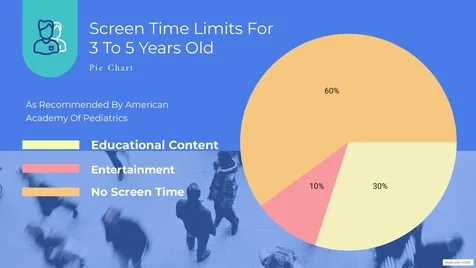Mastering the Art of Parenting: A Guide for 3 to 5-Year-Olds
Table of Contents
Introduction:
I. Understanding the Little Monsters: Developmental Milestones
- Cognitive Development:
- Language Skills: By age 3, children should be able to form simple sentences and engage in basic conversations. By age 5, their vocabulary expands significantly.
- Problem-Solving: Encourage their problem-solving skills through puzzles, games, and imaginative play.
- Social and Emotional Development:
- Empathy and Sharing: Teach your little ones the importance of empathy and sharing, as they begin to understand the feelings of others.
- Independence: Foster their independence by allowing them to make simple choices and complete tasks on their own.
- Physical Development:
- Gross Motor Skills: Engage them in activities that promote coordination, such as running, jumping, and climbing.
- Fine Motor Skills: Encourage activities that enhance their hand-eye coordination, like drawing, coloring, and building with blocks.
II. The Art of Discipline: Setting Boundaries
- Consistency is Key: Establish consistent rules and consequences, ensuring that they understand the boundaries and expectations.
- Positive Reinforcement: Praise and reward good behavior to encourage positive habits and reinforce their sense of accomplishment.
- Time-Outs: When necessary, utilize time-outs as a means of redirecting their behavior and giving them a chance to calm down.
III. The Power of Play: Unleashing the Imagination
- Imaginative Play: Encourage pretend play, where they can unleash their creativity and explore different roles and scenarios.
- Sensory Play: Engage their senses through activities like sand play, water play, or finger painting, which stimulate their cognitive and motor skills.
- Outdoor Adventures: Embrace the great outdoors and let them explore nature, fostering their curiosity and love for the world around them.
IV. Nurturing the Little Heros: Emotional Well-being
- Open Communication: Create a safe space for them to express their feelings and thoughts, encouraging open and honest communication.
- Emotional Regulation: Teach them healthy ways to manage their emotions, such as deep breathing exercises or engaging in calming activities.
- Quality Time: Dedicate uninterrupted time to bond with your child, engaging in activities they enjoy, and showing them unconditional love and support.
V. The Horrors of Nutrition: Healthy Eating Habits
- Balanced Meals: Offer a variety of fruits, vegetables, whole grains, and lean proteins to provide essential nutrients for their growing bodies.
- Limit Sugary Treats: Beware the sweet temptations that lurk in the shadows! Limit sugary snacks and drinks to maintain their dental health and overall well-being.
- Mealtime Rituals: Create a pleasant and relaxed atmosphere during mealtimes, encouraging them to try new foods and develop healthy eating habits.
Charts and Pie Charts:

Educational content, 30% The American Academy of Pediatrics recommends that children ages 3 to 5 limit screen time (excluding educational content) to just 1 hour per day: Educational content like interactive e-books and educational videos and games can help develop skills like language and problem-solving. The AAP recommends up to 30% of daily screen time (around 30 minutes) can consist of high-quality educational content. General entertainment, 10% General entertainment content like videos, TV shows and games not specifically designed to be educational should be limited to around 10% of daily screen time (around 10 minutes) for this age group. No screen time, 60% The majority (around 60%) of a 3 to 5 year old’s waking hours should consist of screen-free activities that promote development, like creative play, outdoor activities, social interactions and reading books. Research shows that excessive screen time for young children can negatively impact language development, social skills, sleep quality, attention span and behavior. Setting clear limits and replacing screen time with interactive activities can help children in this age group thrive.
Conclusion:
FOR MORE VALUABLE TIPS BUY OUR PARENTING COURSES https://www.kidzoot.com/courses/
CONSULT YOUR PERSONAL PARENTING SOLUTIONS VIA APPOINTINTMENT AT https://www.kidzoot.com/appointment-booking/
Follow Us on Twitter www.twitter.com/kidzootworld

